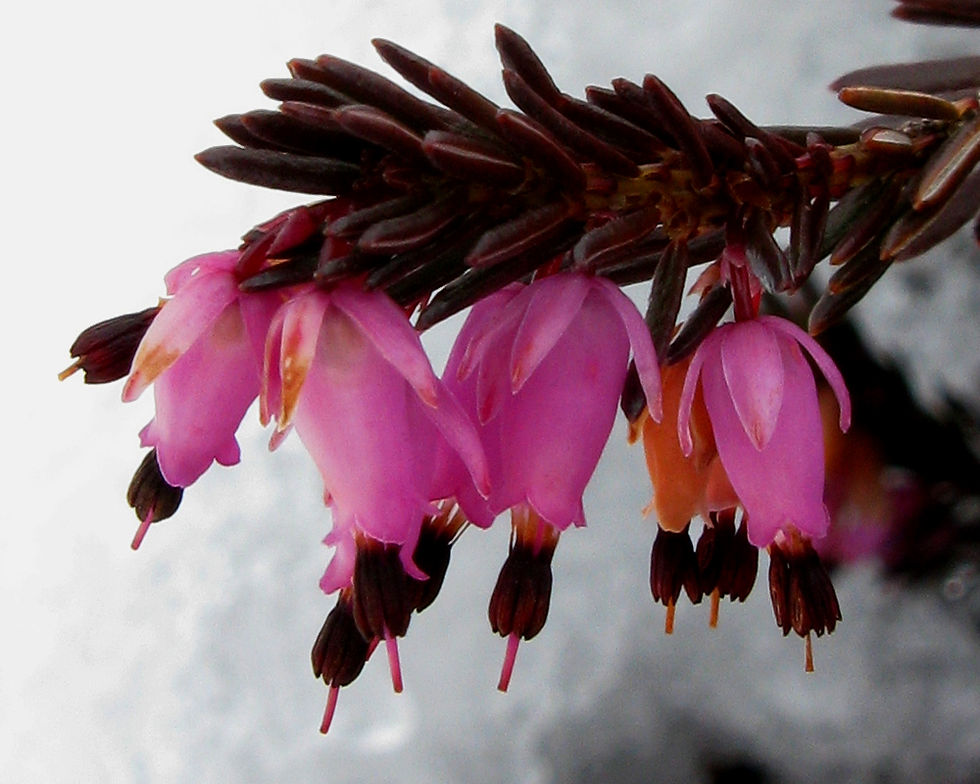Click the tartan to view its entry in The Scottish Registers of Tartans which includes registration details, restrictions, and registrant information.
Unregistered tartans may link to one of the web's online design environments for similar information.
For any questions about reproduction of designs or weaving of these tartans, please contact the registrant directly or via this website.
Johnny Appleseed Day
"An apple grown from seed tastes 'sour enough to set a squirrel’s teeth on edge and make a jay scream.'”
~ Henry David Thoreau (1817-1862)
Apples! Apples! It's Apple tree flower blooming season for early waking trees just in time or Johnny Appleseed Day! Celebrated twice a year, Johnny Appleseed Day is celebrated in both spring and fall, to honor John Chapman (1774 – 1845), the American pioneer and nurseryman who played a key role in spreading apple trees across Pennsylvania, Ontario, Ohio, Indiana, Illinois, and the northern reaches of what is now West Virginia. A devout follower of the Swedenborgian church, Chapman adhered to its prohibition against grafting, planting apple seeds instead. This method produced wild, tart crabapples—far from the sweet apples we enjoy today but perfect for making hard cider, a staple drink on the American frontier.
Crabapples, known for their intense sourness, are rarely eaten raw but are rich in pectin, making them ideal for preserves. Their juice, when prepared properly, transforms into a deep ruby-red spread with a rich, spiced flavor. In Old English, the crab apple was called Wergulu and was one of the nine sacred plants named in the 10th-century cureall known as the Nine Herbs Charm.
Adding to the legacy of apple-based beverages, "applejack"—a potent apple brandy—was first distilled in colonial New Jersey in 1698 by Scottish immigrant William Laird. Once known as "Jersey Lightning," this fiery spirit provides a fascinating glimpse into the colonial drinking culture. Cheers! 🤍 🤎 ❤️ 💚 💗 💛 🥃 🍎 🍎 🍎 🌸 🌱
Johnny Appleseed is an American folk hero based on frontier nurseryman John Chapman, who established orchards throughout the American Midwest.
Born September 26, 1774 in Leominster, Massachusetts. In 1792, 18 year old John persuaded his 11-year-old half-brother Nathaniel to go west with him. The duo apparently lived a nomadic life until their father brought the rest of the family to meet up with them in 1805 in Ohio to start farming. John left the farm to begin an apprenticeship as an orchardist under a Mr. Crawford, who had apple orchards, thus inspiring his life's journey of planting apple trees.
The trees that Chapman planted had multiple purposes, although they did not yield edible fruit. The small, tart crabapples were rich in pectin and useful primarily to make hard cider and applejack, bringing alcohol to the frontier. Planting orchards were one way of serving the critical legal purpose of establishing land claims along the frontier.
Known for his eccentricities in later life, which included a threadbare wardrobe, no shoes, and a tin hat, John Chapman was a staunch believer in animal rights and denounced cruelty towards all living things, including insects. He was a practicing vegetarian in his later years, and did not believe in marriage, expecting to be rewarded in heaven for his abstinence.
Johnny Appleseed is remembered in American popular culture by his traveling song or Swedenborgian hymn:
"The Lord is good to me, and so I thank the Lord, for giving me the things I need, the sun and the rain and the appleseed. The Lord is good to me. Amen, Amen, Amen, Amen, Amen."
This beautiful tartan, designed by Carol A.L. Martin, was inspired by her own flowering apple and crabapple trees.
For more about the real Johnny Appleseed, click the crabapple tree in bloom.









